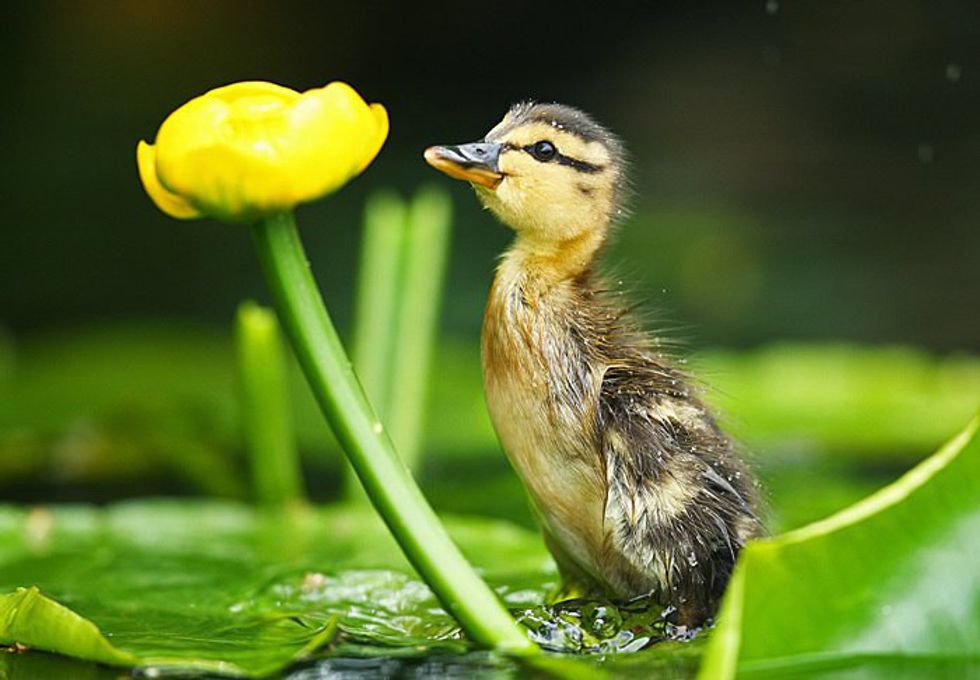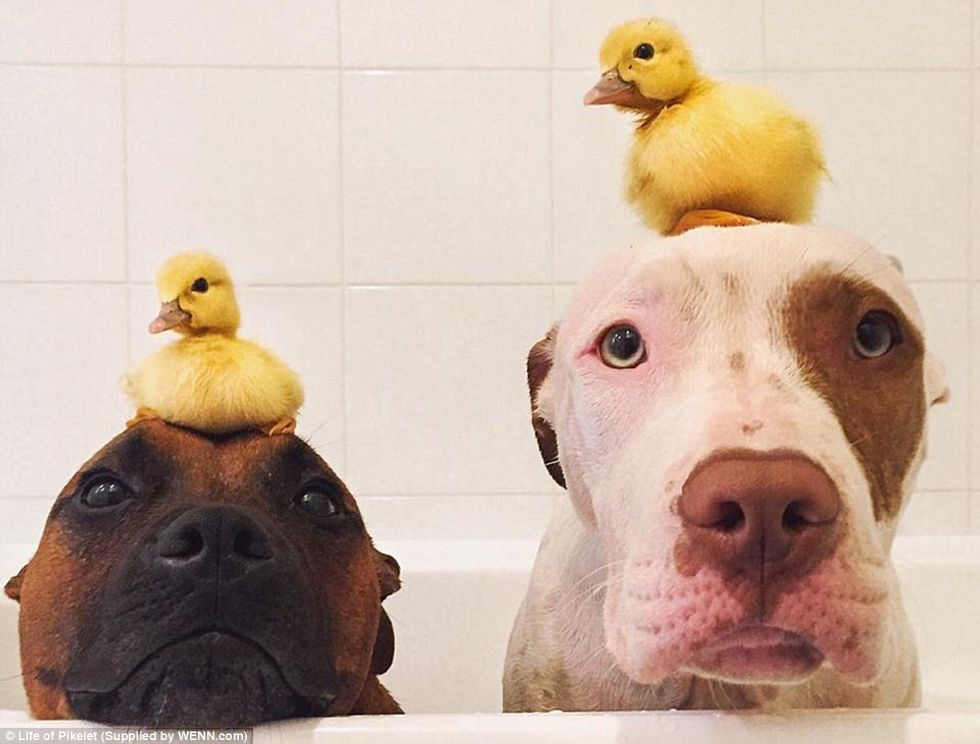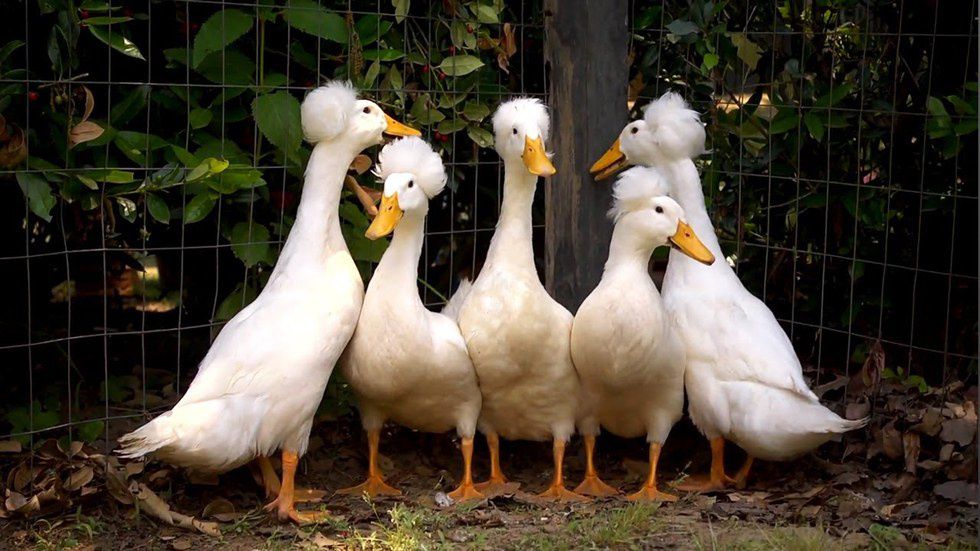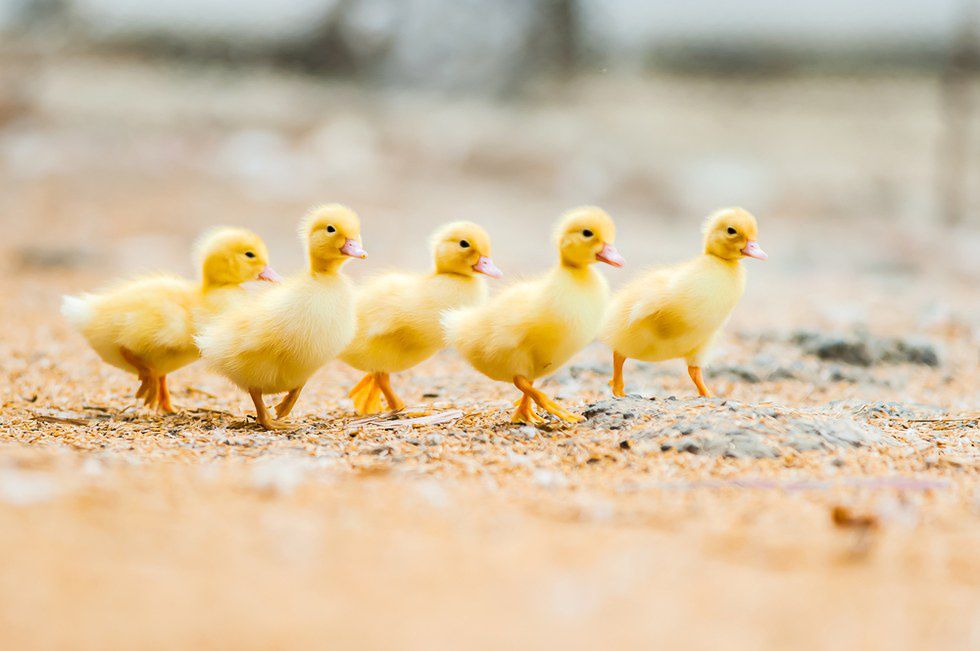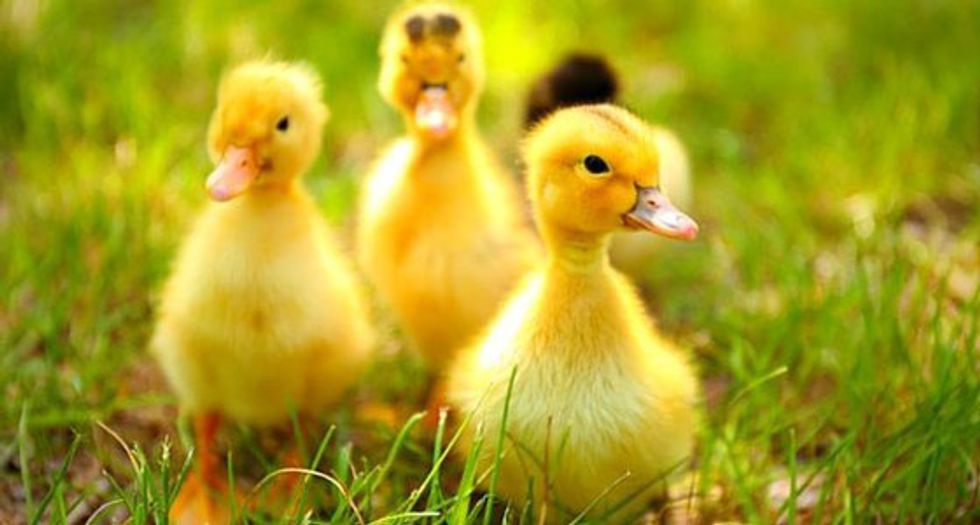Ever since I found out that people keep ducks as pets, I’ve wanted one. Throughout the past few years, I’ve tried to convince my mom to agree. After begging her repeatedly, she finally stopped giving me “no” for an answer and started ignoring me completely. But, fear not, for one day I will sway her. Until then, I’ve settled on the easier task of persuading the rest of the world that ducks have the potential to be phenomenal pets. Don’t get me wrong, I’ve had my share of domestic canines and rodents throughout the last twenty years, and they all hold a special place in my heart, but a life is incomplete until there’s a duck in it, and here’s why:
1. They’re adorable
While this is the least factual point on my list of factual duck facts, it deserves to be first because I believe in love at first sight (when it comes to ducks). Ducks are adorable, primarily during their early weeks as fuzzy yellow incarnations of happiness. Also, they waddle, and the word is almost as cute as the action itself.
2. It will love you like you’re its mother
A unique perk of pet ducks is that if you get them while they’re young enough, or do something even cooler like hatch them at home, they will perform this neat little trick called “imprinting.” I’m not talking Jacob-from-Twilight-falling-in-love-with-a-baby imprinting, I’m talking real science imprinting. If you’re the first thing a lil’ duckling sees when it exits the egg, it will think you’re it’s mother and accepts no other alternative. It will stalk you (adorably) for the remainder of your joy-filled life. Obedience has never come more easily.
3. They’re affordable
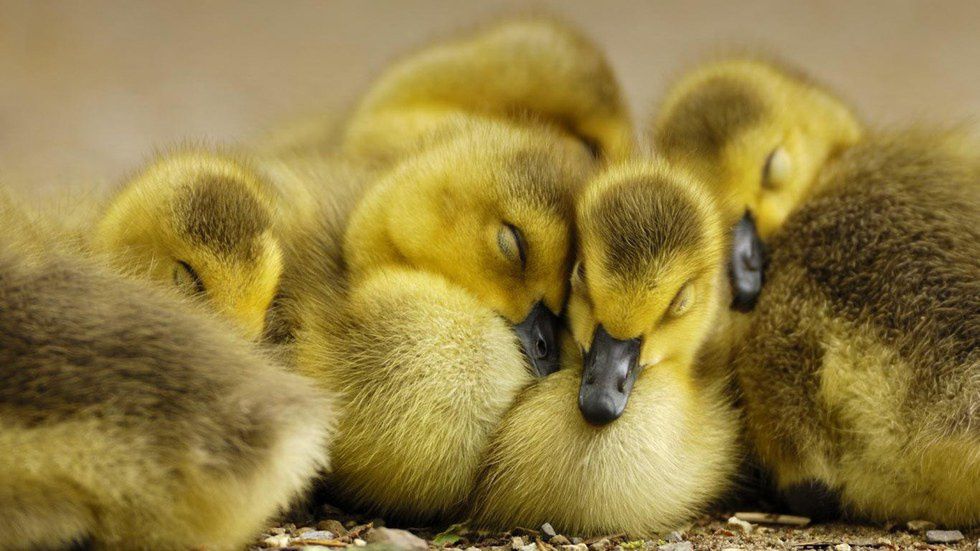
4. They come in all kinds of varieties
Just like other kinds of pets, ducks come with an assortment of characteristics. While some might first imagine a Mallard, the white “Aflac” duck (Pekin) is the most common domestic duck. There are also Rouen ducks, which will be too heavy to fly away from you, and Cayuga ducks, which have a quiet and infrequent quack. I, myself, have my eyes set on the beauty that is the White Crested Duck, or as I like to call it, the duck with a ‘do.
5. They’ll feed you breakfast
They don’t have opposable thumbs, so they can’t plate them for you, but ducks lay eggs that are very similar to chicken eggs. Depending on the breed, their eggs are generally larger than chicken eggs, and packed with more fats and proteins, meaning more bang for your duck.
6. They’ll do yard work
Part of a duck's diet consists of bugs and grasses including those pesky pests and withering weeds you can’t seem to get rid of. Letting a duck wander around in the yard for a bit will help keep things under control while giving your feathery Fido some extra nutrition.
7. They're Self-Bathing
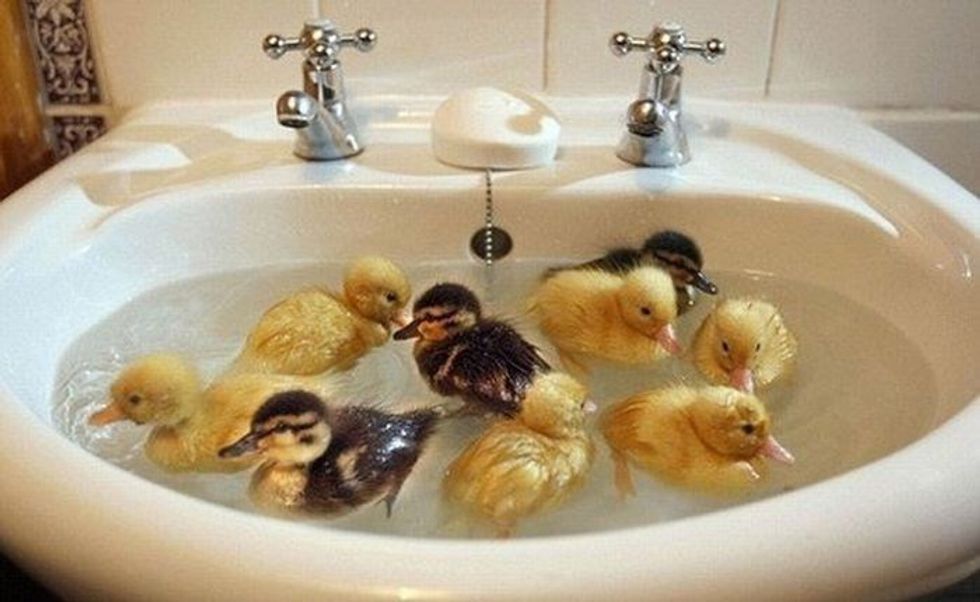
If these didn’t convince you, don’t tell my mom. She doesn't need more support in her anti-fun dictatorship. But, if you are considering a pet duck, make sure you do your research beforehand. While there are plenty of perks to owning a duck, there are also requirements and responsibilities, as with any pet. If you’re an idealist like me, you might gloss over that part, but do your future ducks a favor and study up. Until then, rubber ducks are sold online in bulk.
Waddle on.




